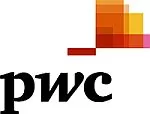From 1 January 2015, all telecommunications, broadcasting and electronic services will be vatable at the place where the end customer is established, has his permanent address or usually resides, irrespective of its VAT status. These changes are likely to have a substantial impact on businesses falling within the purport of these rules, including their VAT filing obligations, IT systems settings, pricing and contractual obligations. The complexity and extent of the new measures require you to act as soon as possible prepared for the 2015 VAT changes in time!
Various "Qualifying Businesses" will be impacted by these changes, including:
- Telecommunication/broadcasting companies
- Cloud computing service providers
- On-line gaming operators
- Payment handlers (e.g. cloud broker)
1. Does the MOSS scheme apply to you?
Currently, telecommunications, broadcasting and electronic services, when supplied by a business established within the EU to non-taxable persons (e.g. private individuals, certain charities and public bodies) are taxed in the Member State where the supplier is established. However, this VAT treatment will change from 1 January 2015, to be brought in line with identical supplies provided by businesses established outside the EU.
If your business transacts with customers established in various EU countries, this is likely to create new administrative and economic burdens since your business may now need to deal with multi territorial VAT obligations and VAT rates. To avoid multiple VAT registrations throughout the EU, the so-called mini one stop shop ('MOSS') scheme, which shall come into force on 1 January 2015, could be used, reducing the administrative burden associated with the changes at hand.
2. What is the MOSS scheme?
The MOSS scheme, will allow businesses supplying B2C telecommunication services, television and radio broadcasting services and electronically supplied services to customers in other Member States to account for the VAT due on those supplies by means of a web portal in the Member State in which they are identified.
This scheme, which is optional, is a simplification measure that therefore allows qualifying businesses to avoid registering for VAT in each of their customers' countries. Instead, qualifying businesses which are registered for the MOSS scheme in a Member State (referred to as the 'Member State of Identification'), electronically submit quarterly MOSS VAT returns detailing supplies of telecommunications, broadcasting and electronically supplied services to B2C customers in other Member States (referred to as the 'Member States of consumption'), along with the VAT due. These returns, together with the VAT paid, are then transmitted by the Member State of Identification to the corresponding Member States of consumption via a secure communications network.
3. Who can register for the MOSS scheme?
Any business that makes B2C supplies of telecommunications, television and radio broadcasting services and electronically supplied services to customers in other Member States (hereinafter "Qualifying Business") may register for the MOSS scheme. Once a Qualifying Business registers for the MOSS scheme, its B2C supplies to customers established in all EU countries, other than those supplied in an EU country in which the Qualifying Business has a fixed establishment or a VAT registration, must be reported in the Member State of Identification under the scheme.
Two different sub-schemes fall under the MOSS scheme. One sub-scheme applies to non-EU based qualifying businesses (the "non-Union scheme") and another for EU based qualifying businesses (the "Union scheme").
4. Are there any guidelines to the legislative changes?
The EU Commission has recently amended the Implementing Regulation 282/2011 to further supplement additional detail relating to the place of supply of services relating mainly to telecommunications services, broadcasting services and electronic services. Such Implementing Regulation includes presumptions on how businesses are to determine the place of taxation of their customers. The updated rules can be accessed at http://eur-lex.europa.eu/LexUriServ/LexUriServ.do?uri=OJ:L:2013:284:0001:0009:EN:PDF
Furthermore, following last year's publication of legislation on the registration and reporting rules for the 2015 MOSS for businesses making B2C supplies of telecommunications, broadcasting and electronic services within the EU, guidelines have now been published by the EU Commission aimed at providing a better understanding of the legislation, along with functional and technical specifications of the MOSS scheme.
The aim of these guidelines is to cover various aspects of the registration and administration process, and to allow Member States enough time to transpose the EU legislation and to set up their IT systems in an appropriate way. In doing so, taxpayers have been provided with the necessary information to adapt to the new rules ahead of the 2015 deadline. Such guidelines are not legally binding but constitute practical and informal guidance about how EU law and EU specifications are to be applied.
These guidelines cover four main aspects:
- The registration process, including deregistration;
- The return process;
- The payment process, including reimbursements;
- Record keeping and other miscellaneous matters.
The guidelines can be accessed at http://ec.europa.eu/taxation_customs/resources/documents/taxation/vat/how_vat_works/telecom/one-stop-shop_guidelines_en.pdf
The EU Commission also announced plans to issue further guidelines on the audit of the MOSS scheme, and explanatory notes on the place of supply rules for telecommunications, broadcasting and electronically supplied services.
The content of this article is intended to provide a general guide to the subject matter. Specialist advice should be sought about your specific circumstances.

